UN plans second Syria constitution meeting for September
Russia, Turkey, Iran to meet next week to discuss Idlib
The United Nations peace envoy for Syria will host senior officials from a range of Western and Middle-Eastern countries next month for talks on drafting a new Syrian constitution, the U.N. said on Tuesday, August 28.
Syria envoy Staffan de Mistura has been tasked with setting up a committee to write a new constitution for the war-ravaged country.
He is already set to host a meeting on September 11-12 at the U.N.’s European headquarters in Geneva of senior officials from the main foreign powers backing the project; Syrian government allies Russia and Iran; as well as Turkey, which supports some opposition groups.
On Tuesday, U.N. spokeswoman Alessandra Vellucci said de Mistura had convened a one-day meeting on September 14 with senior representatives from Egypt, France, Germany, Jordan, Saudi Arabia, the United Kingdom and the United States.
The meeting, Vellucci said, was to focus on “the way ahead on the political process” for Syria, “including the U.N. effort to facilitate the establishment of a constitutional committee.”
De Mistura has said he wants to have the constitutional committee in place before world leaders meet at the General Assembly in New York in late September.
De Mistura’s previous efforts to negotiate an end to the Syrian conflict have achieved no breakthroughs.
More than 350,000 people have been killed and millions displaced since Syria’s war started in 2011 with the brutal repression of anti-government protests.
Syria signs reconstruction deal with Iran
On Monday, Iran’s Defense Minister Amir Hatami said Tehran and Damascus had signed an agreement on military cooperation and reconstruction.
Hatami was on the second day of a two-day visit to Damascus, during which he held “detailed negotiations” with his counterpart Ali Abdullah Ayoub and Syrian President Bashar al-Assad, according to Tasnim news agency.
The “defence and technical agreement” provides for the continued “presence and participation” of Iran in Syria, added Hatami.
Tehran has provided steady political, financial, and military backing to Assad as he has fought back a seven-year uprising.
In an interview Monday night with the Beirut-based Al-Mayadeen television channel, Hatami said the agreement included the rehabilitation of Syria’s defence industry and assured Iran would provide “good service”.
“With this accord, we have paved the way for a reconstruction of the Syrian military industries,” he said.
“The most important element of the deal is the rebuilding of the Syrian armed forces and defence industries so that they can regain their full capacity.”
Russia sets sights on Idlib
The announcement comes as Russian media reported that Moscow was reinforcing its military presence in the Mediterranean near Syria.
Moscow has accused rebels of planning to stage a chemical attack in the northwestern province that would “provoke” Western strikes on its ally Damascus.
Quoting anonymous sources, the Kommersant daily reported that Russia sent two warships and an additional anti-aircraft missile system to the Mediterranean in August.
Pro-Kremlin paper Izvestia said Russia currently has 10 warships and two submarines in Syrian waters, saying this amounted to Moscow’s biggest military presence there since it became involved in the conflict in 2015.
According to Izvestia, Russia plans to send “several more” warships to Syria.
Russia’s deputy foreign minister Sergei Ryabkov charged that the jihadist group Tahrir al-Sham “is close to committing a very serious provocation in Idlib using chemical weapons.”
At the weekend, Russia repeatedly accused Syrian militants of planning the attack in the rebel-held province.
Since Russia military intervened on Assad’s behalf in 2015, the Syrian regime has regained much of the territory lost to rebels and jihadists in the early years of the war.
A cooperation deal between Russia and Turkey in Idlib, which Assad wants to recapture to complete a string of military successes.
Idlib has over the last years become an increasingly densely-populated region where problems in resolving the seven-year civil war were effectively dumped to be resolved at a later date.
That moment is now drawing closer with expectations of a government offensive and fears over the combustible mix in the province of displaced people from other Syrian regions, moderate rebels and Islamist radicals.
Erdogan has been a champion of the anti-Assad rebels and bitterly denounced Russian President Vladimir Putin in the crisis that followed the shooting down of a Russian war plane by Turkey in November 2015.
But the burgeoning alliance with Moscow, which also includes cooperation in trade, energy and defense, is now of critical importance to Ankara at a time when a crisis in relations with the U.S. has caused the Turkish lira to bleed value.
Turkish Foreign Minister Mevlut Cavusoglu on Friday led a delegation including Defense Minister Hulusi Akar and intelligence chief Hakan Fidan to Moscow to discuss the Idlib situation and Moscow’s planned delivery of S-400 missile systems to Turkey.
Cavusoglu warned that a “military solution” in Idlib, which he said is now home to 3.5 million people, would be a “catastrophe” and provoke a new refugee influx into Turkey where three million Syrians already live.
But he also said “radical groups and terrorists” in Idlib should be “neutralized,” in comments seen as indicating Ankara could support a limited intervention.
Iran, Russia and Turkey to meet on Syria next week
The presidents of Iran, Russia and Turkey will also meet next week for their third tripartite summit seeking an end to the Syrian conflict, Turkish state television said Monday.
Erdogan will travel to Iran to meet his Russian and Iranian counterparts Putin and Hassan Rouhani on September 7, state-run TRT Haber television said.
Private NTV television added the summit would be held in the northern Iranian city of Tabriz.
A Turkish presidential official contacted by AFP could not immediately confirm the reports. However, the presidency has invited Turkish journalists to cover a trip by Erdogan to Iran on September 7.
Putin’s spokesperson Dmitry Peskov said the tripartite summit was being prepared but did not confirm the date or venue.
“It could take place in Tehran. This option is being examined. We will make the appropriate announcement once all the nuances have been harmonized through diplomatic channels and when everything is ready,” he added.
Erdogan had previously indicated that he planned to host a summit on Syria on September 7 in Istanbul with Putin and also French President Emmanuel Macron and German Chancellor Angela Merkel.
But press reports over the last few weeks have suggested that such a meeting was increasingly unlikely and was set to be replaced by the latest three-way summit between Iran, Russia and Turkey.
The three leaders have previously met in the Russian resort city of Sochi and the Turkish capital Ankara.
Ankara, Moscow and Tehran are backing peace talks based in the Kazakh capital Astana which they insist are aimed at reinforcing, rather than undermining, the U.N. peace process in Geneva.
With reporting from AFP


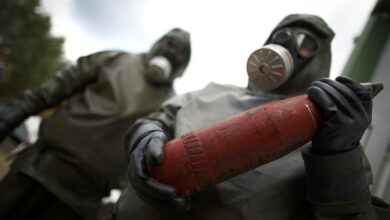
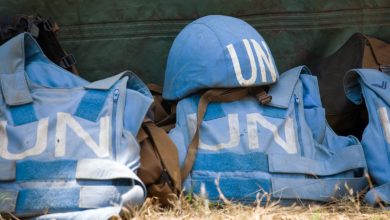
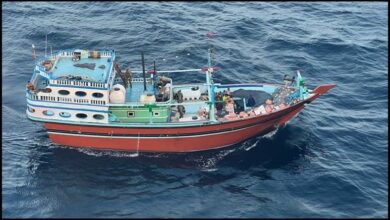

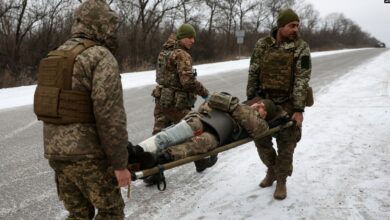
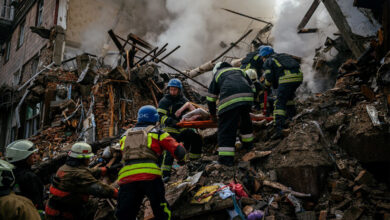

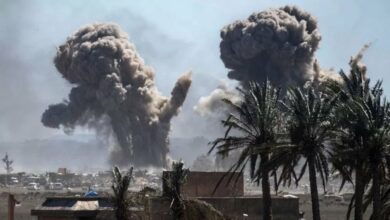
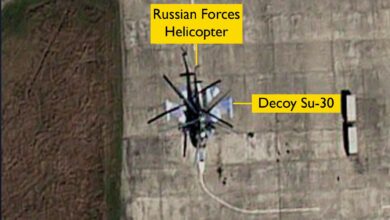
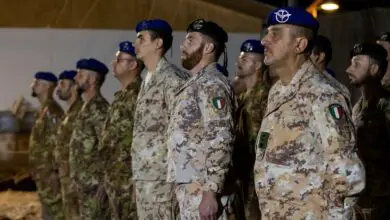
One Comment